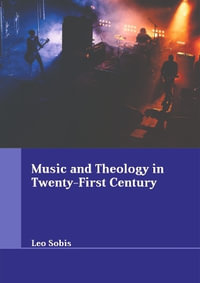Globalization is a reality in today's world, and with it comes the universalization of the influence of certain Powers and Authorities. These Authorities Education, Law, Medicine, Technology distance people from, and sometimes override the duties of, familial and religious connections and have generated new spheres of loyalty and practice that are touchstones for modern life as a whole.
The contributors claim that the Authorities of modernity depend upon spiritual themes and insights. However, they note, these authorities lack a conscious moral rudder because they are not only ignorant of their roots, but because they have often repudiated them, leaving these professions morally and spiritually vacuous. The essayists claim that theological and ethical resources Christian in root, public in character, and universal in implication can re-engage these Authorities and offer them guidance.
Contributors to the volume include: Richard Osmer (Princeton Theological Seminary); John Witte, Jr. (Emory University); Allen Verhey (Hope College); Ronald Cole-Turner (Pittsburgh Theological Seminary); Jurgen Moltmann (University of Tubingen); and Peter Paris (Princeton Theological Seminary). Max L. Stackhouse is the Stephen Colwell Professor of Christian Ethics at Princeton Theological Seminary and is the author of Christian Social Ethics in a Global Era. Don S. Browning teaches at the Divinity School of the University of Chicago and is the author of Religious Thought and the Modern Psychologies: A Critical Conversation in the Theology of Culture.
Industry Reviews
"A project of this magnitude and scope has broad interdisciplinary appeal. These volumes could easily serve as texts for an introductory course in theological ethics or as a resource for clergy in helping faith communities decipher their mission in our ever-changing world. The strength of these two volumes is their ability to integrate many perspectives, not only from the various academic disciplines, but from a diversity of ethnic, cultural, and religious backgrounds. This valuable series of books, by interjecting complex interdisciplinary analyses of globalization that are rooted in people s deepest moral and religious commitments, promises a genuinely public theology and global ethic that respects a plurality of perspectives without surrendering to radical pluralism." Ruben Rosario Rodriguez, Princeton Theological Seminary, Koinonia Vol. XIII.2, Fall 2001--Sanford Lakoff "Koinonia Journal "




















![Tactics : A Game Plan For Discussing Your Christian Convictions [10th Anniversary Edition] - Gregory Koukl](https://www.booktopia.com.au/covers/200/9780310101468/6253/tactics.jpg)




